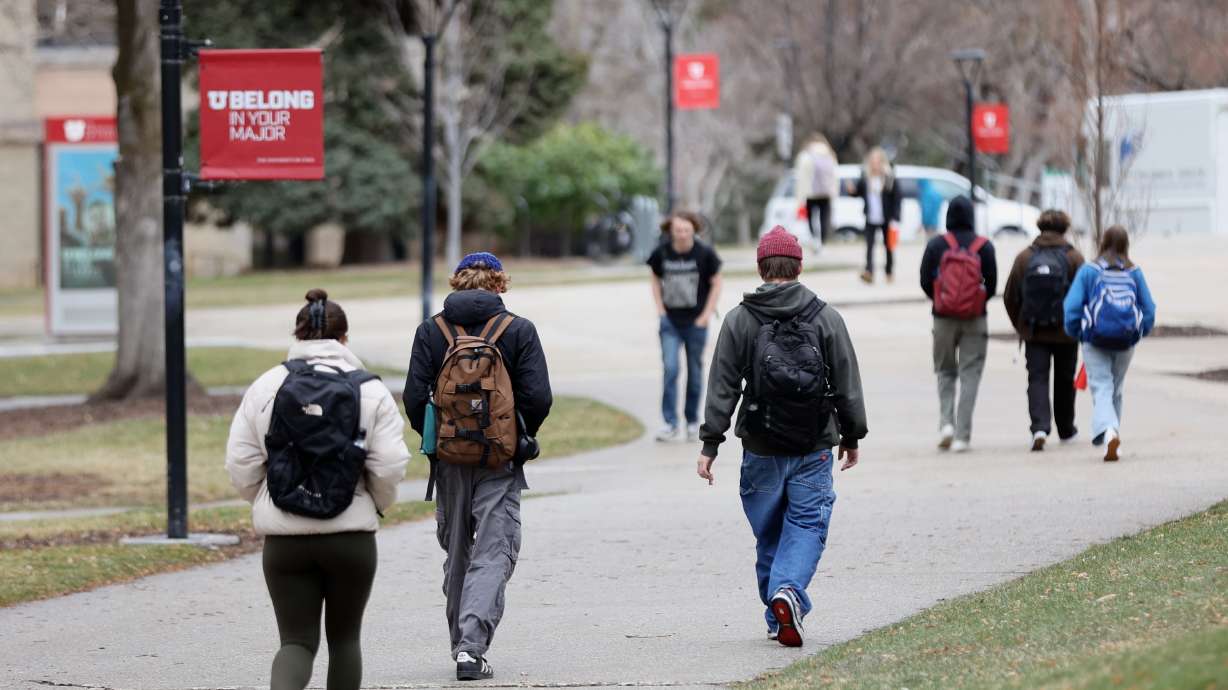Estimated read time: 4-5 minutes
This archived news story is available only for your personal, non-commercial use. Information in the story may be outdated or superseded by additional information. Reading or replaying the story in its archived form does not constitute a republication of the story.
SALT LAKE CITY — The University of Utah will eliminate cultural centers geared to Black, female, LGBT and other students as it shifts gears to comply with a new Utah law that targets diversity initiatives in public universities and other public entities.
Instead, the offerings the centers have provided will be centralized in a new, more broad-based entity, the Community and Cultural Engagement Center. The changes were publicly announced Thursday, ahead of the July 1 deadline to comply with HB261. That's the new Utah law meant to dismantle diversity, equity and inclusion initiatives — typically geared to minority and marginalized students — and prod universities to instead create offerings for all students based on need, regardless of personal identifiers.
"The law and subsequent guidance require a foundational change in how we approach student support, and we will follow the law. This isn't about changing the words we use; we're changing how we approach the work," U. Vice President for Student Affairs Lori McDonald said in Thursday's announcement.
The Community and Cultural Engagement Center, which still needs to be approved by the Utah Board of Higher Education, will focus on "cultural education, celebration, engagement and awareness," said the U., Utah's flagship university. The Center for Student Access and Resources, also part of the changes brought on by HB261, will centralize information on scholarships, offer advisory services and make referrals for mental health and wellness services, without regard to identity characteristics of students.
The U.'s Equity, Diversity and Inclusion division will be eliminated. Likewise, the Black Cultural Center, the Women's Resource Center and the LBGT Resource Center will be eliminated as stand-alone entities, with their offerings provided by the Community and Cultural Engagement Center, the U. said. U. spokeswoman Rebecca Walsh said functions of the Center for Equity and Student Belonging, geared, broadly, to Latino, first-generation, Asian and other "underrepresented" student groups, will also be folded into the engagement center.
"The Black Cultural Center building will continue to operate as a space for broader community engagement," the U. Student Affairs office said in a separate statement. What's more, "resources and cultural celebrations" the shuttered entities had offered and overseen will become the domain of the two new centers, the U. said. The U. will still celebrate events like Juneteenth, Martin Luther King Jr. Week, Pride Week and cultural heritage months.
Similar to the U., Weber State University in Ogden will eliminate seven cultural centers that had been geared to varied segments of the campus, including Black, Latino, female and LGBTQ students, to comply with terms of HB261. All Utah's public universities must comply with HB261's varied provisions — including a prohibition on requiring job applicants to offer their thoughts on diversity initiatives — as well as public schools, cities and other government entities.
In the wake of HB261, the Utah Board of Higher Education created the guidelines for cultural centers.
'Personalized support and services'
Defenders of diversity programming have said such initiatives help minority and other traditionally underrepresented students overcome racism and discrimination they have historically faced. University officials seemed to try to assuage worries such advocates may have with the varied changes brought on by HB261.
"Our campus plays an important and historic role in creating an educational setting that gathers, celebrates and honors a wide array of communities at the U. and in our surrounding area," said Mitzi Montoya, the university provost. "As this new organization takes shape, I am confident that our students, faculty and staff will continue to receive the personalized support and services they need to thrive and succeed as we foster an ongoing culture of care."
To be retained at the U. will be American Indian Resource Center, which will be renamed the Center for Native Excellence and Tribal Engagement. HB261 doesn't impact entities that get federal funding.
The Dream Center, which works with undocumented students and students from "mixed-status families," will also remain. "Its services are based on immigration status, not race or ethnicity," Walsh said.









